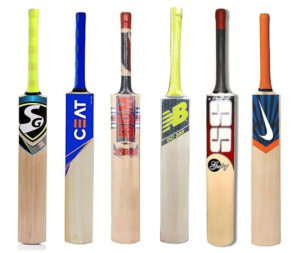The Best Materials for Shower Door Hardware: A Complete Comparison
When it comes to selecting shower door hardware, the material you choose can significantly impact durability, functionality, and aesthetics. With various options available, understanding the strengths and weaknesses of each material is essential for making an informed decision. This article provides a complete comparison of the best materials for shower door hardware.
1. Stainless Steel
Overview
Stainless steel is one of the most popular materials for skyline sliding shower door due to its durability and resistance to corrosion. It is an alloy made primarily of iron, carbon, and a minimum of 10.5% chromium, which provides its anti-rust properties.
Benefits
- Corrosion Resistance: Stainless steel is highly resistant to rust and corrosion, making it ideal for humid environments like bathrooms.
- Strength: This material is known for its strength and durability, ensuring that the hardware can withstand regular use without bending or breaking.
- Aesthetic Appeal: Stainless steel hardware offers a modern and sleek look that complements various bathroom styles.
Drawbacks
- Cost: Stainless steel can be more expensive than other materials, which may increase your overall shower renovation budget.
- Maintenance: While it is resistant to rust, stainless steel can still show water spots and fingerprints, requiring periodic cleaning to maintain its appearance.
2. Brass
Overview
Brass is an alloy of copper and zinc and is often used in shower door hardware for its classic aesthetic and durability. It is available in various finishes, including polished, brushed, and antique styles.
Benefits
- Durability: Brass is strong and resistant to corrosion, especially when properly coated.
- Design Versatility: The variety of finishes available allows you to match the hardware with other bathroom fixtures seamlessly.
- Antimicrobial Properties: Brass naturally has antimicrobial properties, making it a hygienic choice for bathroom environments.
Drawbacks
- Tarnishing: Brass can tarnish over time, especially if exposed to moisture. Regular polishing may be required to maintain its luster.
- Weight: Brass is heavier than some other materials, which may require more robust installation methods.
3. Aluminum
Overview
Aluminum is a lightweight and versatile material commonly used in shower door hardware. It is often anodized or painted to enhance its appearance and durability.
Benefits
- Lightweight: Aluminum is easy to handle and install, making it a practical choice for DIY projects.
- Corrosion Resistance: Anodized aluminum is highly resistant to corrosion, making it suitable for humid bathroom settings.
- Cost-Effective: Generally, aluminum is less expensive than stainless steel and brass, making it a budget-friendly option.
Drawbacks
- Less Durable: While aluminum is resistant to rust, it is softer than stainless steel and brass, making it more prone to dents and scratches.
- Appearance: Some may find the look of aluminum less appealing than the more luxurious finishes of brass or stainless steel.
4. Plastic and Composite Materials
Overview
Plastic and composite materials are often used for lower-cost shower door hardware. These materials can mimic the appearance of metal while being lightweight and inexpensive.
Benefits
- Affordability: Plastic hardware is generally the most budget-friendly option, making it accessible for various projects.
- Lightweight: Easy to install and handle, plastic hardware can be a practical choice for smaller projects.
- Variety of Styles: Plastic hardware can be molded into various shapes and colors, allowing for creative design options.
Drawbacks
- Durability: Plastic is not as strong or durable as metal options and can become brittle over time, especially in high-heat environments.
- Aesthetic Limitations: While plastic can mimic metal finishes, it may not provide the same level of sophistication as real metal.
5. Glass
Overview
Glass hardware, often used in frameless shower designs, includes clamps, brackets, and hinges made from tempered glass. It provides a modern and minimalist aesthetic.
Benefits
- Aesthetic Appeal: Glass hardware creates a sleek, contemporary look that enhances the overall design of the shower.
- Seamless Appearance: Glass hardware allows for a more open and spacious feel in the bathroom, making it an excellent choice for smaller spaces.
Drawbacks
- Fragility: While tempered glass is strong, it can still break under extreme pressure or impact, necessitating careful handling and installation.
- Limited Functionality: Glass hardware typically requires additional support from metal components, which may increase overall project complexity.
Conclusion
Selecting the best material for shower door hardware involves weighing the benefits and drawbacks of each option. Stainless steel and brass are excellent choices for those seeking durability and a high-end look, while aluminum offers a lightweight and cost-effective solution. Plastic and composite materials provide affordability, but may lack the longevity of metal options. Glass hardware can enhance modern aesthetics but comes with fragility concerns. By considering your budget, style preferences, and the specific needs of your bathroom, you can choose the right hardware that will provide both functionality and beauty for years to come.

